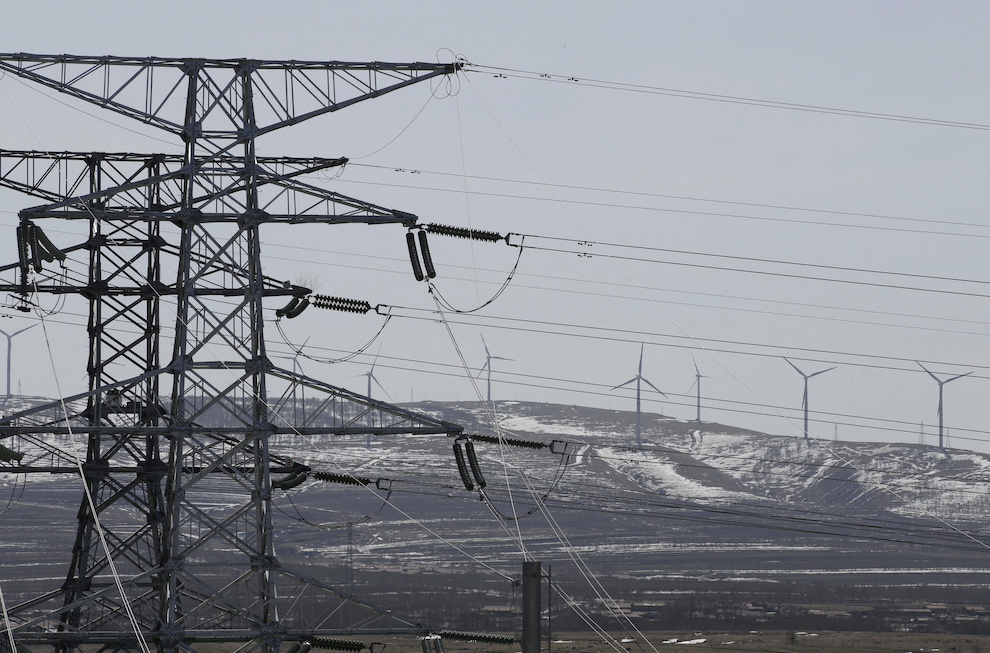China’s long-awaited energy law has been issued for public comment after being approved by the country’s top legislative body.
The law, initially drafted in 2005, looks set to be considered by the Standing Committee of the National People’s Congress, according to economic news outlet Jiemian, which said it will “considered at three [NPCSC] meetings before being put to a [final] vote” before being enacted later this year.
The law, which has been nearly two decades in the making, is believed to have been “stalled by vested interests” before the State Council submitted it to the NPCSC, the South China Morning Post reported recently.
ALSO SEE: Macron and Xi Set to Discuss Trade Concerns, War in Ukraine
It quoted an unnamed Tsinghua University law professor who blamed the delay – allegedly one of the longest ever faced by a bill in the country – on staunch resistance from energy sector stakeholders, who “lobbied extensively” to “[try] to hold onto their territory”.
The professor speculated that their opposition to major changes to the energy system may have been broken by President Xi Jinping’s anti-graft campaign.
Xi seeks ‘realistic’ energy path
Xi called on policymakers to “be realistic, by not slowing the pace of green and low-carbon development, and not be too idealistic, above all guaranteeing energy supply”, Chinese energy news site International Energy Net reported.
The law “clearly supports prioritising the development of renewable energy; rational development of clean and efficient use of fossil energy; and orderly promotion of non-fossil fuel energy instead of fossil fuel energy and low-carbon energy instead of high-carbon energy,” Jiemian said.
The draft law calls on the state to “establish a mechanism to promote green energy consumption and encourage energy users to prioritise using renewable energy and other clean and low-carbon energy sources”, according to Carbon Brief, which cited International Energy Net.
National Energy Administration director Zhang Jianhua told a technology forum in Beijing that China would “lead the innovation of the clean energy industry … [to] further strengthen the foundation of energy security [and] continue to improve the scale and quality of non-fossil energy supply”, state news agency Xinhua said in late April.
‘Failing to meet its 2025 commitments’
Meanwhile, the country’s Environment and Ecology Ministry is pushing for carbon emissions per unit of GDP – known as carbon intensity – to fall by 3.9% in 2024, according to CCTV, the state broadcaster.
Carbon Brief said in analysis in late February that carbon intensity would need to fall by nearly double that amount – 7% a year – to meet China’s 2025 climate commitments.
“This was echoed by consultancy Trivium China, which said in a recent newsletter that the target for 2024 “isn’t enough to get China emissions intensity reductions back on track,” it said.
However, more positive news was that moves by the Biden administration and Beijing to discuss their differences in a bid to ease bilateral tensions has reinvigorated cooperation on climate change, as noted by the People’s Daily and other outlets.
A US-China climate action working group held a virtual meeting, at which they vowed to “strengthen communication” and cooperation on controlling methane emissions.
New climate reps
China’s climate envoy Liu Zhenmin, a diplomat who replaced Xie Zhenhua early this year, has said he plans to visit the US this month for his first face-to-face meeting with his US counterpart John Podesta, who has taken over from John Kerry as Special Envoy for Climate Change. Podesta served as senior adviser to Biden for clean energy innovation and implementation since September 2022.
Liu said China wants to boost cooperation on energy and efforts to curb greenhouse gases beyond carbon dioxide. He said the two countries have to cooperate as much as they can on climate, and need to respect each other on all issues.
He said moves to keep Chinese products – solar panels, electric vehicles and batteries – out of Western markets could hold back the energy transition, largely because they are much cheaper than those made in the West.
Still, concern remains that tension over Taiwan, or trade disputes, which are expected to heat up as campaigning in the US election intensifies in the second half, could potentially derail these commitments.
2023 was the hottest year on record, and forecasters are already warning there’s a strong chance 2024 could top that.
- Jim Pollard
ALSO SEE:
Dozens Killed in Highway Collapse in Southern China: State Media
Indonesia to Move 1.9m People Out of Sinking Jakarta – IBT
Asia is Warming Faster, Hit Hardest by Climate Disasters: WMO
Floods, Droughts, Earthquake, Big Freeze Cost China $3.3bn
Study Shows Half of China’s Big Cities Sinking, Rising Seas Risk
Scientists Fear Record Ocean Heat Is Changing Earth’s Systems
Freezing Weather Disrupts New Year Trips Home by Millions of Chinese
China Told to Expect More Heatwaves, Extreme Weather in 2024
























